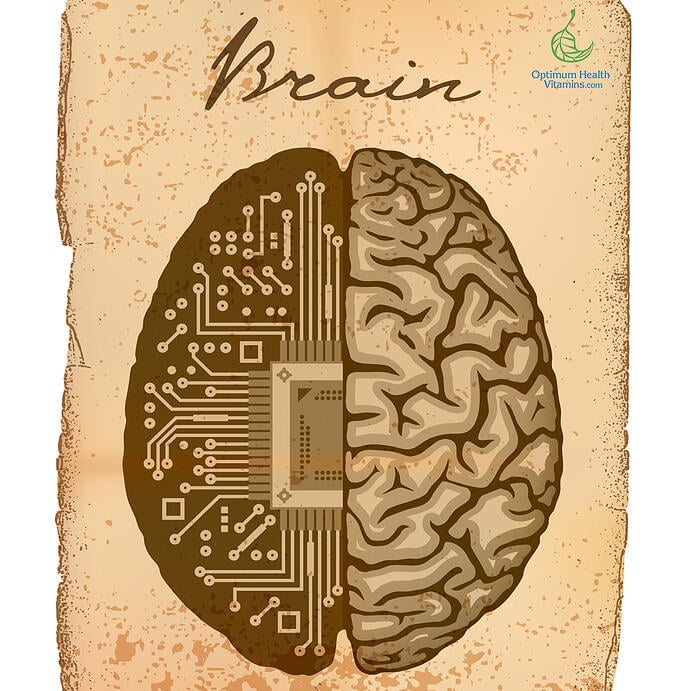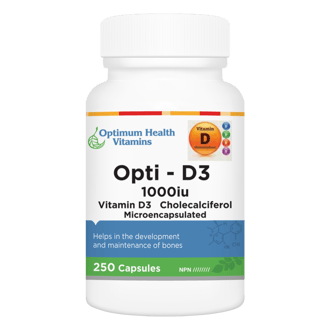 Hack is an internet term for a short cut that we use in some capacity to make our lives easier. These are normally ingenious methods that involve creativity and a whole lot of imagination. In the vitamin world, these are substances that help us achieve some higher level of health through perfected supplementation.
Hack is an internet term for a short cut that we use in some capacity to make our lives easier. These are normally ingenious methods that involve creativity and a whole lot of imagination. In the vitamin world, these are substances that help us achieve some higher level of health through perfected supplementation.
We've highlighted how to make your brain work better by using some very effective supplements and methods that can enhance function or improve memory and these are some of the best.  1. Vitamin D: According to researchers at the University of Wisconsin, deficiency levels of vitamin D in the body can directly result in cognitive impairment. Scientists stated that there are receptors for vitamin D throughout the central nervous system and in the hippocampus, and that the vitamin is responsible for the activation and deactivation of certain enzymes, as well as neurotransmitter synthesis and nerve growth. Furthermore, it was shown to protect neurons and decrease levels of inflammation in the brain. A couple of new European studies state that the influence of vitamin D goes beyond even this. Essentially, their discovery was that the lower a patients’ vitamin D levels, the lower their performance was on a large amount of mental tests and exercises. In an English study of over 3000 subjects, it was determined that lower vitamin D levels in people correlated directly to a slower-than-average information processing speed.
1. Vitamin D: According to researchers at the University of Wisconsin, deficiency levels of vitamin D in the body can directly result in cognitive impairment. Scientists stated that there are receptors for vitamin D throughout the central nervous system and in the hippocampus, and that the vitamin is responsible for the activation and deactivation of certain enzymes, as well as neurotransmitter synthesis and nerve growth. Furthermore, it was shown to protect neurons and decrease levels of inflammation in the brain. A couple of new European studies state that the influence of vitamin D goes beyond even this. Essentially, their discovery was that the lower a patients’ vitamin D levels, the lower their performance was on a large amount of mental tests and exercises. In an English study of over 3000 subjects, it was determined that lower vitamin D levels in people correlated directly to a slower-than-average information processing speed.
2. Essential Fatty Acids: The famous 3 essential fatty acids are Omega 3, 6 and 9, and their great amount of attention from the health world in recent years is not unwarranted or overblown. There are numerous health articles published in major medical journals that attest to the efficacy of essential fatty acids in terms of raising cognitive performance, and the direct causal negative effects that happen when there is a deficiency. In a cross-sectional analysis published in 2013, it was determined that healthy UK children with lower concentrations of DHA and other essential fatty acids had below average reading abilities and benefited from Omega 3 supplementation in the following conditions: ADHD, Dyspraxia, and Dyslexia.
3. Exercise: We all know that exercise is good for our bodies and our cardiovascular health, but few people really realize the huge impact that exercise has on our brain’s ability to perform. The effect of physical exercise on mental function has been widely studied since the beginning of the 20th Century. In an older study published in Sports Medicine Journal in 2002, several study results were synthesized and analyzed by researchers to determine the following: i) human arousal is improved by physical exertion meaning that we are more alert and capable of making quick and logical decisions immediately following exercise; ii) our body gets more efficient at allocating its resources after physical exercise and it is suggested that our brains get priority; and iii) when difficult cognitive tasks were assigned during exercise, it was determined that the subjects’ performance at those mental tasks was greater improved. In fact, the harder the physical exertion, the more mental attention that was used to control movements!
4. Caffeine: A lot of people are so used to brewing up a warm cup of coffee every morning that few understand how it affects your brain chemistry and can contribute to a enhanced mental performance. This is because of the presence of caffeine which has a large body of medical literature behind it in order to study its effects on mental performance. The combined results of these studies have shown mixed effects for caffeine. On one hand, it improves passive but not active learning; it facilitates tasks that involve working memory; it improves reaction time; at low doses, it reduces anxiety; and it has been reported to prevent cognitive decline in healthy subjects. So drink up that warm cup but make sure it’s not too much!
5. Phosphatiydalserine: This is a common supplement to find in the “brain” section of the health food store and with good reason. This extract from soy or bovine cortex has a plethora of studies behind it for the fast improvement of memory decline and cognitive performance in general. In test after test, average dosages of this supplement have shown to have favorable effects of cognitive function in people of all ages with no risk of adverse events or lack of tolerance.
6. Alpha Lipoic Acid: The effect of this organic acid on cognitive function has been very well reported in the medical world in addition to its numerous benefits for metabolic syndromes and as an antioxidant. According to a study in the Journal of Neurodegenerative Diseases as of 2013, Alpha Lipoic Acid could be beneficial for slowing cognitive decline in patients with Alzheimer’s Disease and Insulin Resistance. The latter remains a common risk factor in the development of the former and as such, if we are able to reduce insulin resistance and help the cell to more effectively produce energy, one can prevent the other as well. Over a period of two years, 126 patients with Alzheimer’s Disease were studied in a number of classifications. In a clinical setting, they were given ALA therapy in an outpatient setting in the south of Italy. Ultimately, given the results, researchers determined that as a biological antioxidant and natural cofactor of mitochondrial function, ALA could be used for the safe and effective treatment of diabetic neuropathy, and that there is a causal link between insulin resistance, neuropathy and the development of Alzheimer’s Disease.
7. Acetyl-l-Carnitine: Carnitine is an amino acid that is created in the liver and kidneys from the other amino acids lysine and methionine. Its most basic biological function is to facilitate the transport and metabolism of long-chain fatty acids into the mitochondria for energy generation. Acetyl-l-Carnitine supplements have been extensively researched for its effect of athletic performance, increased fat metabolism, the lowering of cholesterol levels and heart protection. Additionally, there are at least 51 other known conditions that ALC has positive effects on clinically. Cognitively, these include: the reversal of brain aging, reduces age-related deterioration of sight and hearing (particularly macular degeneration), has positive effects on the brain NDMA receptor system, shows improvement in spatial memory, is a precursor of the neurotransmitter acetylcholine, rescues neurons from neurotoxicity, restores choline activity in the hippocampus, has an overall neuroprotective effect, preserves diminished function of the carnitines in the brains of older animals, rescues aged neurons, improvements in Down’s Syndrome, Alzheimer’s disease and dementia.
Whichever method and combination you go with, these supplements and exercises can help benefit your cognitive function in the event of some impairment or preventatively.
To our brains!
Nakia

Disclaimer: The above information is provided for informational purposes only and is not intended to replace the advice of your physician.


